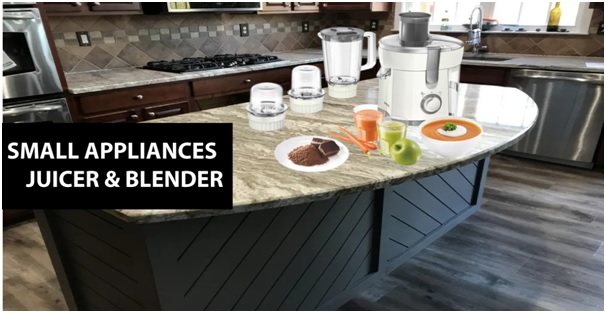Choosing between a gas cooker and an electric cooker is like picking your favorite flavor of ice cream – it all comes down to personal taste. Each of these kitchen workhorses has its own unique charms, advantages, and quirks. The choice ultimately comes down to your taste, way of life, and the particular artistry of your cooking method. Let’s explore their distinctions so you can select the one that best suits your demands and style of cooking.
The Heat of the Matter
The heat source is without a doubt the most important factor when it comes to cooking. As the name implies, gas cookers produce heat through a direct flame. Your cookware is heated instantly and precisely as the flame dances beneath it. Many chefs swear by its responsiveness for its fiery nature. The flame appears when you turn the knob, ready to sear, simmer, or sauté as you like.
On the other hand, electric cookers use induction technology or electrical coils to heat your pots and pans. They take a little longer to warm up and cool down than gas does. This can be a downside if you’re seeking the immediacy of a gas flame, but they compensate with their consistency. Since they reach the right temperature quickly and keep it there consistently, they are perfect for slow and steady cooking.
Energy Efficiency and Environmental Impact
The effects of our decisions on the environment are an important consideration in the era of eco-conscious living. Natural gas or propane, when burned in gas cookers, releases carbon dioxide into the air. Even though modern models consume less energy and generate fewer greenhouse emissions than older ones do, they still have a carbon footprint.
Electric cookers, especially induction cooktops, are frequently hailed as an environmentally friendly choice. Because they employ electromagnetic induction to directly produce heat in the cookware, they are very energy-efficient. This results in less heat loss and quicker cooking times. However, your electricity source affects how environmentally friendly it is. The environmental impact of your electric cooker is significantly reduced if it uses renewable energy.
Precision vs. Simplicity
Many cooks enjoy the level of precision offered by gas cookers. It is possible to adjust the flame’s intensity instantly, allowing for delicate maneuvers such as lowering the heat when a sauce is about to boil over. But for new cooks who might find it difficult to locate the ideal flame level, it can also be scary.
On a dial or digital display, you set the desired temperature, and the cooker takes care of the rest. For those who want to concentrate on the recipe rather than fine-tuning the heat, this simplicity can be a blessing. Additionally, you can leave a pot to simmer without having to constantly adjust it, which is perfect for multitasking.
Aesthetics and Kitchen Design
The kitchen is an area for aesthetics and design in addition to being a location where food is prepared. Gas cookers frequently have a traditional, rustic appearance. Your cookware is surrounded by flickering flames that exude a warm and welcoming atmosphere. They can serve as the center of attention in a typical kitchen and even serve as backup lighting during power outages.
Electric cookers, particularly induction cooktops, give a sleek and contemporary appearance. They create a simple and elegant aesthetic because they sit flush with the countertop. An electric stove can easily fit into your design if you choose a modern kitchen or have a small kitchen.
Maintenance and Safety
Gas cookers need a little more care and attention when it comes to maintenance. To avoid clogs and ensure safety, burners, grates, and gas lines must be cleaned regularly. Gas leaks are another possibility that must never be disregarded.
In general, electric cookers require less upkeep. There are no gas lines to be concerned about, and smooth ceramic or glass surfaces are simple to clean. Electric cookers frequently have safety features like automatic shutoffs, which adds to the peace of mind.
Cost Considerations
Another factor to take into account is the cost of installation and maintenance. Since natural gas and propane are frequently less expensive than electricity, gas cookers typically have reduced operating costs. However, because a gas connection is required, the initial installation cost could be higher.
Despite being easier to install, electric cookers typically have higher operational costs. Utilizing energy-efficient appliances and techniques for cooking helps offset this.
The Verdict: A Matter of Taste
There is no clear winner in the epic battle between gas and electric cookers. Your final decision will be influenced by your culinary preferences, environmental beliefs, and kitchen design. Others may find comfort in the steady warmth of electric coils, while some may swear by the fierce passion of a gas flame.
Consider your preferences and priorities, and don’t be afraid to mix and match. Today, a lot of kitchens have both gas and electric appliances, enabling cooks to make use of the best of both worlds. After all, a little variety may give things the perfect amount of spice in both the cooking and in life.








